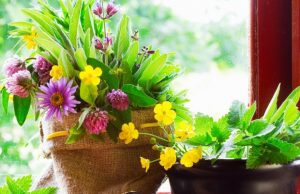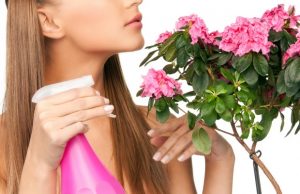As women we take great pride in the decor and style of our home, but it can be greatly improved with addition of indoor plants. However, indoor gardening can be a tricky task for beginners, but with these helpful gardening tips your plants will flourish and grow beautifully inside your home.
Sunlight is Necessary


The main reason that plants are usually grown outdoors is because of their need for adequate amounts of sunlight. Although sunlight is necessary for the growth of most plants it is possible for plants to attain adequate amounts of sunlight indoors.
This can be achieved by placing your plants near windows that get direct sunlight. There are some plants that can grow in the shade, but all other plant species require sunlight to blossom and mature. Window seals with gorgeous flowers are a great decor item for any home.
Indoor Plants Require Pots
Instead of planting your plants directly into the ground, you must place your plants in pots filled with soil that will allow them to mature and grow. Plastic pots with trays are the best selection, because they will limit the growth of fungi and will keep the area surrounding your pot much more clean and sanitary.
Soil for your indoor plant should be combined with fertilizer to inspire growth and make your ant bloom faster. It can also be beneficial to add fertilizer to your indoor plants every six months if you notice warning signs like yellow leaves or wilting plants.
Water in Abundance and Limit Pests
Water is an essential part of effective gardening. Most plants require vast amounts of water to sustain them and allow them to grow. Indoor plants often require more watering than outdoor plants, because rain can not be attained indoors. It is important to determine the amount of water that your distinct indoor plant needs to survive. Although most indoor plants thrive on water it can be detrimental to give them too much water.
You must find the correct balance that will allow your indoor plant to grow, but not drown. Pests are another element that can have detrimental effects on your plants. Although indoor plants are at a much less risk of experiencing pest damage than outdoor plants, they are still at some risk. Artificial pesticides in small doses can make your indoor plants grow faster, but be sure to monitor your plants for signs of pest problems.
Gardening is not limited to just outdoor use and the look of your home can be greatly improved by the addition of plants inside your home. There are some limitations to indoor gardening,but the rewards are well worth the work and dedication.